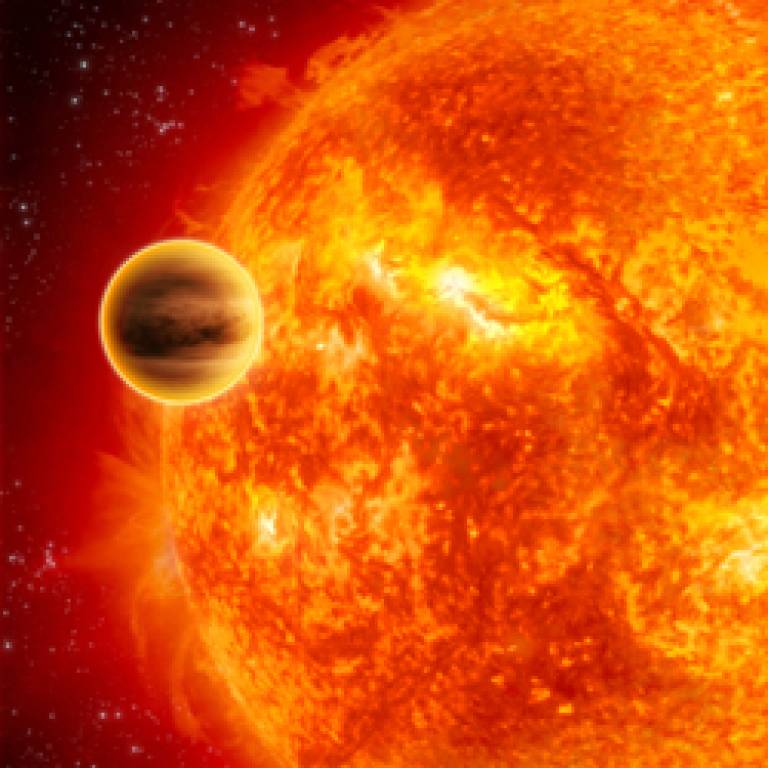First water found on extra-solar planet
12 July 2007
UCL astrophysicists have discovered signs of water on a planet outside our solar system for the first time.

The findings, published in the 12 July 2007 issue of 'Nature' magazine, describe the planet - called HD 189733B - orbiting a star in the constellation of 'Vulpecula the Fox', which is 64 light years from our sun.
The research team, led by Dr Giovanna Tinetti (UCL Physics & Astronomy and European Space Agency), found that as the planet passes in front of its sun, it absorbs starlight in a way that can only be explained by the presence of water vapour in its atmosphere.
The discovery was made using NASA's Spitzer Earth-orbiting telescope, taking measurements at a number of key wavelengths in the infrared region of the spectrum that pick out the crucial signature of water.
The water detection relied not only on Dr Tinetti's painstaking analysis, but also on the calculation of highly accurate water absorption parameters by Dr Bob Barber and Professor Jonathan Tennyson (UCL Physics & Astronomy).
Dr Barber said: "The absorption parameters were calculated from our Barber-Tennyson list of water vapour spectral lines. This includes over 500 million individual absorption features, each like fingerprints, giving us vital clues to the amount of water present and the temperature of the atmosphere."
Professor Tennyson, Head of UCL Physics & Astronomy, explained: "Parts of the atmosphere of the planet are very hot - around 2,000 °C. You need the millions of lines we calculated to simulate this, putting in absorption accurately where it should be and - just as accurately - giving gaps for the light to get through the atmosphere, where it can."
HD 189733b's star is very much like our own sun, although a little cooler. However, the planet is not like Earth. HD 189733b is a gas giant planet, about 15 per cent bigger than Jupiter and more than 30 times closer to its star than the Earth is to the Sun - explaining why it is so hot, and crucially, unlikely to support life in such an inhospitable atmosphere.
Water in its liquid form - vital for life on this planet - only exists in a narrow band of temperature and pressure. The discovery of a planet in a similar temperature and pressure range as the Earth has still proved elusive.
Dr Tinetti added: "The 'holy grail' for today's planet hunters is to find an Earth-like planet that also has water in its atmosphere. When it happens, that discovery will provide real evidence that planets outside our solar system might harbour life. Finding the existence of water on an extra-solar gas giant is a vital milestone along that road of discovery."
To find out more, use the links at the bottom of this article.
Image: Artist's impresssion of HD 189733B (Credit: ESA - C. Carreau)
 Close
Close

